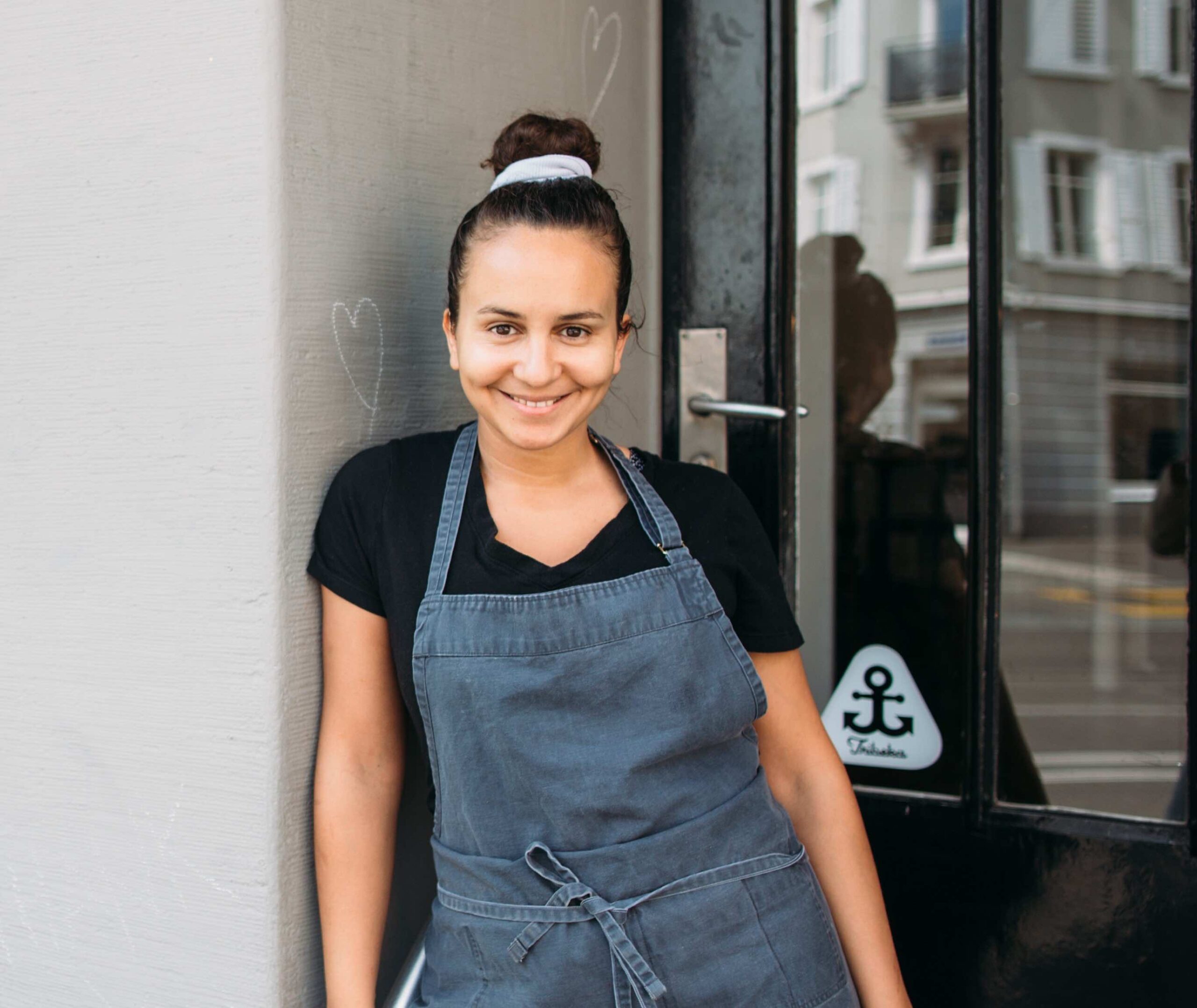Rabat – The World’s 50 Best Restaurants awards selected Moroccan Chef Zineb Hattab as the sole hospitality professional from North Africa and the Middle East for its 2022 50Next edition. The award celebrates those who are “fighting for a brighter future for gastronomy.”
Based in Zurich, Switzerland, Hattab owns two plant-based restaurants: KEL and DAR.
In an interview with Morocco World News, Hattab said that, “It’s truly an honor to be part of the 50Next,” stressing that the award belongs to her staff and suppliers who seek to “inspire people to make better food choices.”

KLE team. Credit: Zineb Hattab
She continues, “As part of a minority, I’m well aware of the importance of representation, and I acknowledge the chance that I have to show that there’s a place in this industry for everybody, no matter their gender, race, ethnicity, or sexual orientation.”
The recent praise of Hattab’s pioneering work in developing Switzerland’s plant-based gastronomy scene is another addition to a long list of recognition for Hattab and her team since they opened the KEL and DAR restaurants.
After enjoying “a strong, warm welcoming from Switzerland,” Hattab told MWN that her KLE restaurant was the first plant-based restaurant in Switzerland to receive the Green Michelin star. It was also selected for the “Discovery of the Year” award by Gault&Milau.
The success of KLE extended to Hattab’s Moroccan-inspired DAR (which translates to “house” in Arabic), which was described by The50Best “as an opening to keep on the radar.”
Noticeably distinct from KLE, the DAR restaurant provides an “informal friendly venue” where guests can enjoy themselves and share Moroccan-inspired dishes with friends and family. As the venue is also decorated with material and furniture imported from Fez, customers are able to completely immerse themselves in a unique Moroccan cultural and gastronomical experience.

Picture from the DAR restaurant. Credit: Zineb Hattab
Read Also: Meet the Growing Vegan Community of Morocco
“We opened DAR as a connection to my heritage and identity. My parents are both from Fez, where the food culture is incredibly rich and important,” Hattab told MWN.
Inspired by the “diversity and contrast” of Moroccan gastronomy, the Zurich-based Chef seeks to rework Moroccan traditional dishes in order to render them vegan friendly.
Hattab, however, finds that many local recipes are easily suited to this task, as there are “a lot of plant-based dishes in the Moroccan traditional repertoire and a few of them can be modified without sacrificing taste.”
According to Hattab, Moroccan cuisine has much to contribute to the plant-based transition in the gastronomy sector.

Credit: Zineb Hattab
Hattab’s work in introducing vegan versions of traditional Moroccan dishes to the Swiss public reflects her deep connection to her homeland and her commitment to promoting Moroccan food and culture worldwide.
Proud of her heritage, Hattab describes herself as a tree with Moroccan influence shaping her roots. “A strong tree needs strong roots to survive the winds and the external influence.”

Credit: Zineb Hattab
Read Also: Gad Elmaleh’s Mom Launches ‘Walida’ Couscous Delivery Service
















